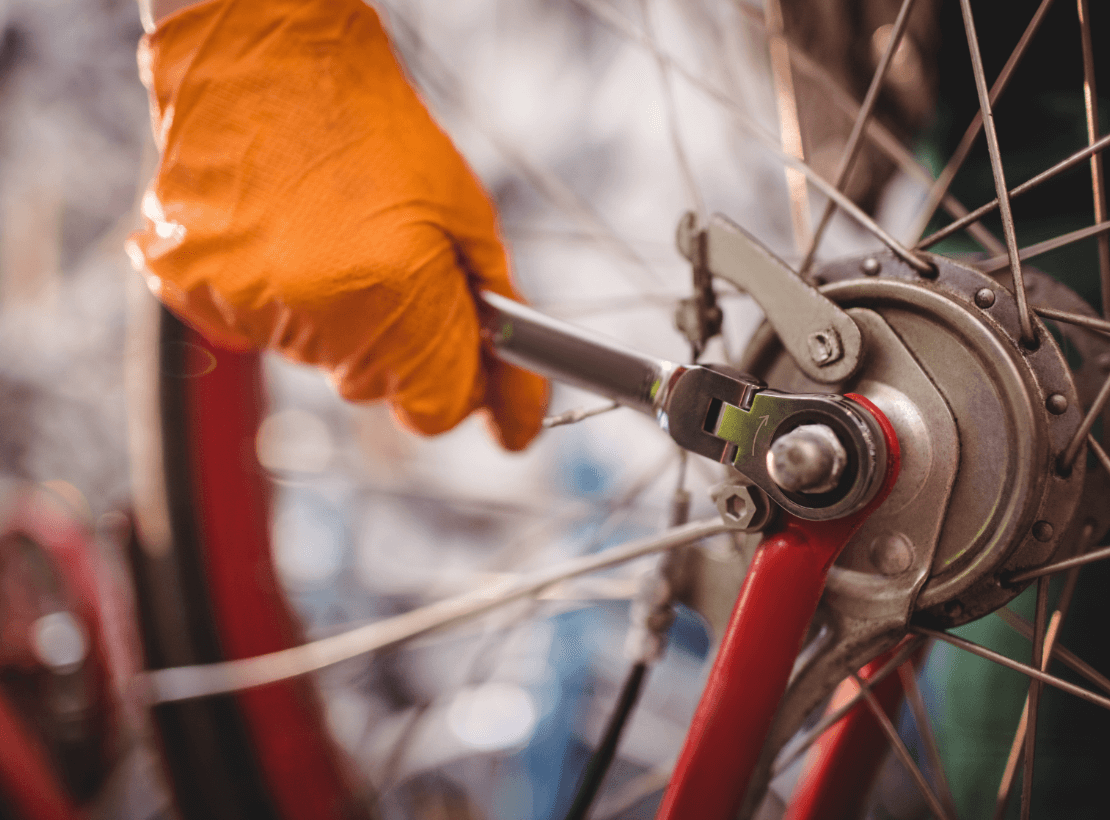-
How to choose the right fastener material?
In selecting the right material for your application. It is important to understand material characteristics. Best to consider the weight, hardness, magnetism, corrosion resistance and conductivity of the material.
Read more about material info... -
How to choose the most suitable screws?
First of all, you have to consider the key purpose or application for your project. Choose the fastener (screws or nuts) that match your requirement(s). Then, we can consider the head type, thread, material and surface treatment of different screws.
Read more about Screw Head Type... -
How to choose the right surface finish for my fasteners?
We have to consider the color appearance, rust-resistance and environment for the application of the screw.
Read more about Surface Treatment... -
What are the differences between screws, bolts and studs?
Basically, the difference between a cap screw and a bolt is the way in which these fasteners are installed. Technically, a bolt is installed by turning a nut to tighten the fastener, while a cap screw in installed by turning the head of the bolt to assemble and tighten. In other words, a screw is a tapered fastener that mates with an existing thread or creates its own thread in a material as it turns. A bolt is a non-tapered fastener that uses a washer and nut to hold objects together.
-
Why do we need washers?
The key function of washer is to reduce the contact surface area of the connected part. Thus, reducing the pressure per unit area and protecting the surface of the connected part from damage. Washers protect the surface from damage during installation. They distribute the pressure and prevent the fastener from moving or corroding. The spring washer can also play a role in preventing the nut from loosening. Operating without flat washers or spring washers can dramatically reduce the lifespan of how your product is put together.
-
What is difference between self-tapping and self-drilling screws?
Both types of screws can cut or penetrate through sheet metal surface.
Self-Tapping Screw – a screw for securing thinner sheet metals and other substrates that cuts its own thread, but usually requires a predrilled or pre-punched hole. Thus, Self tapping screws tap their own head, so they need a pilot hole slightly smaller than the screws diameter. Tapping screws drill a pilot hole into wood or another soft material. Self-tapping screws are ideal for all sorts of materials such as wood, metal and brick.Not all tapping screws have a pointy tip, some will be blunt, notches on the thread for thread-cutting or flat.
Self-Drilling Screw – also know as TEK screws, these screws work as both a drill bit and a fastener. It is a screw that can, well, self-drill through various gauges of metal materials without predrilling. Commonly used when doing frame work on cars, or attaching sheet metal to a metal frame. TEK screws have much variance in types and uses than tapping screws.
-
What are differences between Stainless Steel types and grades? (SUS304 / SUS316) ?
The most basic difference between the grades of steel is the presence of molybdenum in stainless 316. Stainless 316 contains more nickel than stainless 304, while 304 contains more chromium than 316. Stainless 304 usually consists of 18% chromium and 8% nickel.
Common Types of Stainless Steel:
SUS304:Good corrosion resistance, heat resistance, low temperature strength and mechanical properties, good malleability & workability such as stamping and bending. Widely used in household products; tableware, cabinets, indoor pipelines, water heaters, boilers, bathtubs, auto parts, medical appliances, building materials, chemical & food, agriculture industries and ship-building parts.
SUS304L:Austenitic stainless steel grade,with good welding performance, excellent corrosion resistance and heat resistance; Excellent low temperature strength and mechanical properties. No heat treatment hardening properties (non-magnetic, applicable temperature- 196 ~ -800℃)
SUS316:The corrosion resistance and high temperature strength and work hardening mechanical properties are particularly good. Suitable for seawater equipment, chemistry, dyes, papermaking, oxalic acid, fertilizer production equipment, photography, food industry and coastal facilities.
SUS316L:Mo (2-3%) is added to the stainless steel, so it has excellent corrosion resistance and high temperature strength; SUS316L has lower carbon content than SUS316, has good welding performance, and has better intergranular corrosion resistance than SUS316; elevated temperature creep strength. It can be used under harsh conditions with good work hardening properties. Suitable for sea water equipment, chemistry, dyes, papermaking, oxalic acid, fertilizer production equipment, photography, food industry, coastal facilities.
SUS410:(Mada San series), high strength, high hardness (magnetic); poor corrosion resistance, not suitable for use in severely corrosive environments; low C content, good workability, surface hardening through heat treatment.
SUS420 (round rod):(Mada San series), high strength, high hardness (magnetic); poor corrosion resistance, poor processing and formability, good wear resistance; can be heat treated to improve mechanical properties. It is widely used for processing knives, nozzles, valves, rulers, and tableware.
SUS430 (plate or panel):Low thermal expansion rate, good molding and oxidation resistance, suitable for heat-resistant appliances, burners, home appliances, class 2 utensils, kitchen sinks. Relatively low price, good workability; good corrosion resistance, typical non-heat treatment hardenable ferritic stainless steel.
-
What are types of corrosion?
Surface Corrosion : Formed by the wear and tear of the surrounding environment, such as sand, salt in the air, causing the underlying material to be exposed to oxygen and cause oxidation, forming the so-called rust.
Local or Diffusional Corrosion : When the outer surface layer of a particular part of the screw falls off and causes oxidation in a certain place.
Contact Corrosion : This is caused when different materials come into contact during the electro-chemical process.
Stress Corrosion Cracking : When small cracks appear on the screw junction, corrosive chemicals will accelerate the formation and make the material of this part rust.
Pressure Corrosion : Usually refers to the hydrogen embrittlement of the environment, which is caused by hydrogen infiltration in the surrounding environment when the screw is under pressure. Surface corrosion can also allow hydrogen to penetrate the screw.
-
What is RoHS?
RoHS stands for Restriction of Hazardous Substances. It is an environmental protection that mainly regulates the material and process standards of products. This was passed in 2003 and took effect on July 1, 2006. All products entering the European Union will be restricted by this directive. RoHS compliance prohibits the content of more than 0.1% by weight of lead (Pb), mercury (Hg), hexavalent complex (Cr), polybrominated biphenyl compounds and their compounds, polybrominated diphenyl ether compounds (PBB) and their PBDEs (PBDE) ) And 0.1% cadmium (Cd) electronic products enter the EU market.
-
What is Minimum order quantity for ordering fasteners ( MOQ ) ?
MOQ depends on the product specifications. The first step is to determine whether your requested item is a general standard specification product or a non-standard, customized specification product, and whether we have stock available in our inventory warehouse.For standard items, the MOQ will be according to our normal packaging details per bag / per cardbox box or per carton. Depending on dimension size of the item, normally the MOQ for each item is 50,000PCS per size item.
-
How to calculate delivery fee or shipping cost?
For domestic Taiwan Customers, we offer FREE Shipping if the total Purchase Order value exceeds NTD $3000 per order. For domestic Taiwan Customers, if the total PO value is less than NTD $3000, the shipping cost will be NTD $100 flat rate (only local delivery in Taiwan area) For overseas Customerm if the total PO value exceeds Minimum Order Amount (MOA) of USD $3000, we can deal in FOB or CNF or CIF Incoterms (FREE local handling charges and customs clearance fee) For overseas Customer with total PO value less than USD $3000, we can only deal in EX-WORK Taiwan terms. Otherwise, additional handling and customs clearance fee total of USD $200 is required to be paid by the Customer against PO.
-
What basic information needs to be provided in the inquiry (RFQ form)?
In order to save your valuable time, please provide the following basic info
1. Material for your requested item?
2. Specifications & Dimension Sizes and Tolerances ?
3. Require heat treatment(Hardening) ?
4. Require what type of Surface Treatment?
5. Order quanitity per shipping?
6. Your company profile? (Please provide business card)
7. How did you find out about us ?
8. Main application of your requested item(s) ?
9.Specific packaging requirements ?
10. Trading term or delivery address?
11. What is the key reason you are changing suppliers? Any important matter we need to be aware of? ?
12.Required production lead time or Estimated Time of Delivery? & 13. Please indicate your ideal target unit price or your budget.
DO YOU KNOW?! FUN FACTS:

- ONE Boeing 767 jet airplane needs about 1.8 million screws and nuts
- ONE car requires more than 2,000 fasteners
- ONE bicycle needs about 40 to 50 screws
- In 2017, TAIWAN created an export value of up to USD $4.3 billion, and the export volume is also approaching 1.6 million tons
- Made in Taiwan Fasteners, also named as "Industrial Rice" it is widely used and essessential in all kinds of industries, such as: a pair of glasses cannot be assembled without screws. Now it is also widely used in the medical field, including dental implants and orthopedic screws.
- A high-quality clock or watch, a screw must go through as many as 20 processes before it can become the screw that controls the hour, minute, and second hands.
- Globalization is the key. Export our quality fasteners globally, we must develop a larger scale and establish a local service system in order to serve the global customer base more efficiently.

- Wood screws for furniture, plastic screws in toilet tanks, industrial screws, railroad screws, power screws, construction screws... etc. The types of screws are ever-changing, and the degree of professional division of labor is far beyond our imagination. For example, Taiwan’s tallest building TAIPEI 101 uses building torque control bolt, which must be able to withstand a certain degree of force and are indispensable in the structure. Fasteners are an important cornerstone of a building.
- In the production of standard parts (standard screws and nuts), facing the world-wide price-competitions, Made in Taiwan products are bound to develop into high value-added products such as automotive and aerospace fasteners in order to differentiate and develop our niche market fasteners.
- Under the emerging wave of Industry 4.0, cross-border mergers and acquisitions, intelligent application of new products, and the development of aerospace and automotive fasteners are all excellent opportunities for the transformation and upgrading of TAIWAN's fastener industry. Especially in the face of the current development of digitization, intelligence and automation, there is still a lot of room for the upgrade of the fastener industry in Taiwan.
 Browse Our Product Catalogs
Browse Our Product Catalogs











